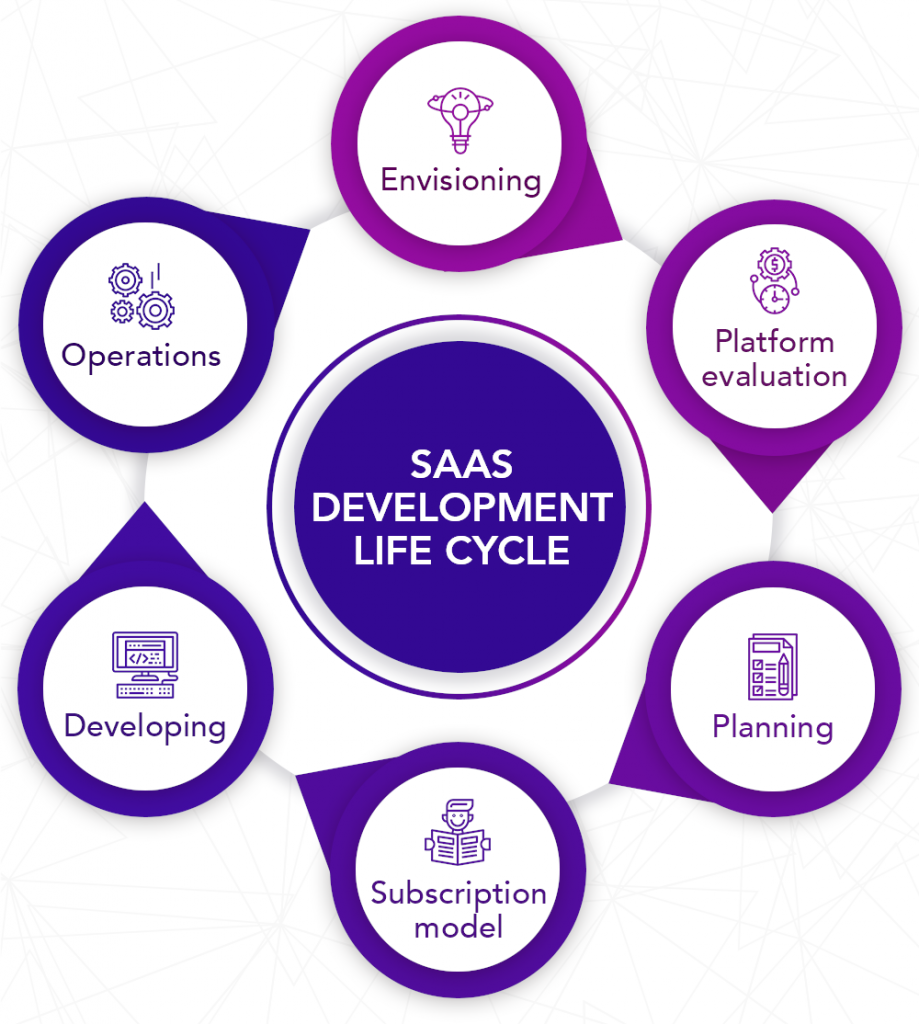Imagine launching a groundbreaking software solution, accessible to anyone, anywhere, without the hassle of complex installations or hefty upfront costs. That’s the power of SaaS – Software as a Service. But turning that vision into reality requires more than just a brilliant idea.
It demands expert SaaS development services. These services are the engine behind building and maintaining cloud-based applications, crucial for businesses aiming to scale efficiently, reduce IT overhead, and reach a global audience. Whether you’re a startup looking to disrupt an industry or an established enterprise seeking to modernize your operations, understanding the intricacies of SaaS development is paramount.
In this article, we’ll delve into the key aspects of these services, exploring everything from choosing the right technology stack to navigating common development challenges, ultimately equipping you with the knowledge to make informed decisions and unlock the full potential of SaaS for your business.
Unlocking Growth: Your Guide to SaaS Development Services
Software as a Service (SaaS) has revolutionized how businesses operate, offering scalable and accessible solutions. Finding the perfect partner for your SaaS project is vital. We are here to guide you through this journey!
This guide is your go-to resource for navigating the complexities of SaaS development. Get ready to learn how to choose the right services and ensure your project achieves its potential.
Let’s explore the world of SaaS and how the right development services can transform your ideas into reality.
Success in today’s digital age requires understanding, strategy, and collaboration. Join us as we unpack these key factors.
What are SaaS Development Services?
SaaS development services encompass all the processes needed to build, deploy, and maintain a software application delivered over the internet. This includes everything from initial planning to ongoing support.
These services often involve a team of experts, including developers, designers, and project managers. They all work together to turn your vision into a functional, market-ready product.
The focus is on creating a scalable, secure, and user-friendly application that meets the unique requirements of your business. They also ensure it addresses the needs of its intended audience.
SaaS development firms bring specialized knowledge and experience to the table. This is essential for navigating the intricacies of cloud-based software development.
Ultimately, these services provide the expertise and resources needed to create successful SaaS products. This allows businesses to focus on their core competencies while relying on professionals for their software.
Benefits of Using Specialized SaaS Development Teams
Engaging a specialized SaaS development team offers numerous advantages over handling development in-house. Their focused expertise accelerates the development process considerably.
Specialized teams bring deep knowledge of cloud platforms, security protocols, and scalability best practices. This experience is invaluable for creating robust and reliable applications.
These teams are often more efficient due to their established workflows and specialized skill sets. This efficiency translates into faster time-to-market and reduced development costs.
Furthermore, specialized teams can help you avoid costly mistakes. Their experience allows them to anticipate and address potential challenges proactively.
By leveraging the expertise of a specialized SaaS development team, you’re investing in quality. This ensures your software is built on a solid foundation and optimized for long-term success.
Key Features to Look for in a SaaS Development Partner

Choosing the right SaaS development partner is crucial for the success of your project. You should evaluate potential partners on several key criteria.
Look for a company with a proven track record in developing similar SaaS applications. Review their portfolio and client testimonials to assess their experience and expertise.
Ensure the partner has a strong understanding of the technologies and platforms relevant to your project. This includes cloud infrastructure, programming languages, and security protocols.
Assess their communication and project management skills. A good partner should be transparent, responsive, and proactive in keeping you informed throughout the development process.
Consider their approach to security and compliance. They should prioritize data protection and adhere to relevant industry regulations.
Finally, evaluate their ongoing support and maintenance services. A reliable partner will provide continuous assistance to ensure your SaaS application remains stable and secure.
The SaaS Development Process: A Step-by-Step Guide
Understanding the SaaS development process can help you navigate the project more effectively. Each stage has its unique challenges.
The initial stage involves defining your project’s goals, target audience, and key features. Thorough planning sets the stage for success.
Next, the design phase focuses on creating a user-friendly interface and intuitive user experience. Visual appeal and usability are paramount.
Development involves writing the code and building the application’s functionality. Rigorous testing ensures stability and performance.
Deployment is the process of launching your SaaS application. Careful monitoring ensures a smooth rollout.
Finally, ongoing maintenance and support are essential. This keeps your application up-to-date, secure, and responsive to user feedback.
Cost Considerations for SaaS Development
SaaS development costs can vary depending on the project’s complexity and scope. Understanding the different factors influencing price is vital.
The size and experience of the development team will significantly impact costs. More experienced teams typically command higher rates.
The complexity of the application’s features and functionality will also influence costs. Custom features and integrations often require more development time.
The choice of technology stack can impact costs. Some technologies are more expensive to implement and maintain than others.
Ongoing maintenance and support will also contribute to the overall cost. Consider these long-term expenses when budgeting for your project.
Obtaining detailed quotes from multiple SaaS development providers will help you compare costs and find the best value.